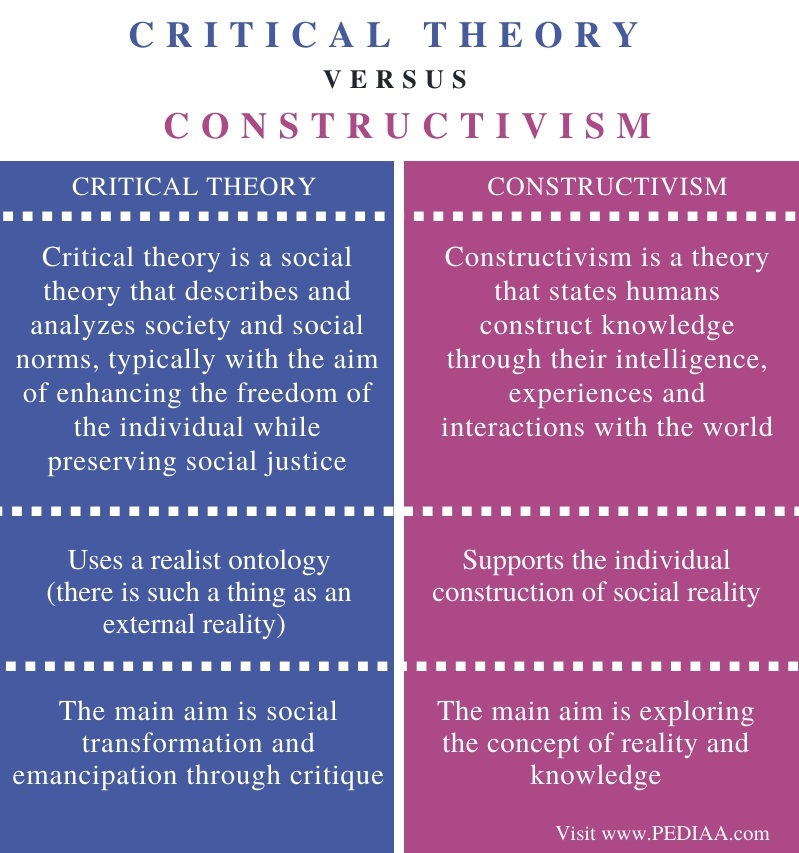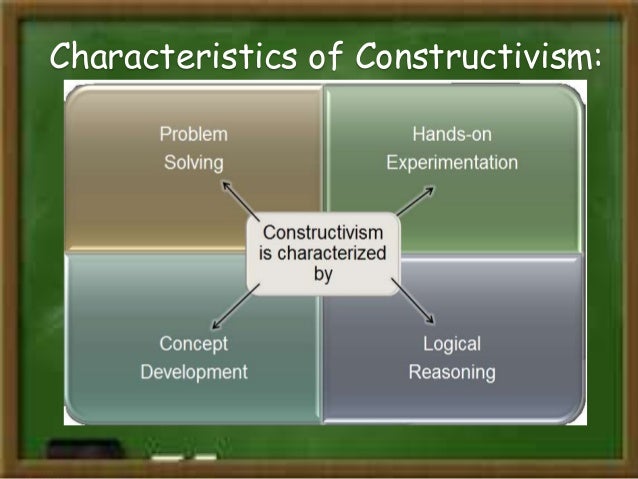Are Constructivism And Idealism The Same?

In the realm of philosophy and international relations, the terms "constructivism" and "idealism" often surface, leading to curiosity about their similarities and differences. Both theories have significantly influenced how societies interpret reality and shape their interactions on the global stage. However, while they share some overlapping ideas, they fundamentally diverge in their foundations and applications. This article delves into these theories' intricacies, exploring their origins, core principles, and impact on modern thought.
Introduction
Constructivism and idealism are two pivotal theories that have shaped human understanding across various disciplines. While both emphasize the role of ideas and beliefs in forming societal structures and international systems, they approach these concepts from distinct angles. Constructivism focuses on the social construction of reality, positing that our understanding of the world is shaped by social interactions and cultural norms. In contrast, idealism is rooted in philosophical traditions, highlighting the primacy of ideas and consciousness in shaping what we perceive as reality.
To better understand these theories, let's explore their definitions and underlying principles, alongside a quick info table for a concise comparison.
| Aspect | Constructivism | Idealism |
|---|---|---|
| Origin | Social sciences and international relations | Philosophy |
| Core Focus | Social construction of reality | Primacy of ideas and consciousness |
| Key Proponents | Alexander Wendt, Nicholas Onuf | Immanuel Kant, George Berkeley |
| Impact on International Relations | Emphasizes the role of social norms and identities in shaping state behavior | Advocates for the importance of ethical values and moral principles in politics |
| Criticisms | Seen as lacking empirical rigor | Criticized for being overly optimistic and impractical |
The Philosophical Roots of Idealism
Origins and Development
Idealism has a rich philosophical heritage, with roots tracing back to ancient Greece. Plato, one of the earliest idealists, argued that reality as we perceive it is merely a shadow of the true, unchanging world of forms or ideas. This concept laid the groundwork for later thinkers like Immanuel Kant, who further developed idealism by asserting that human experience is shaped by innate structures of the mind.
Core Principles
At its core, idealism posits that reality is fundamentally mental or spiritual. According to idealists, the material world is secondary to the world of ideas, which are the true substance of reality. This perspective has profound implications for ethics and politics, suggesting that moral principles and ethical considerations should guide human actions and governance.
Influence on Thought and Policy
Idealism has significantly influenced political theory, particularly in its emphasis on ethical and moral imperatives in international relations. It advocates for a world where peace and cooperation are achievable through the application of universal moral principles. This idealistic vision has inspired movements toward global governance and human rights, although it has been critiqued for its perceived naivety in the face of geopolitical realities.
Constructivism: A Social Science Perspective

Emergence and Evolution
Constructivism emerged in the late 20th century as a response to the dominance of realism and liberalism in international relations. Alexander Wendt, a key figure in this field, argued that the structures of international politics are not only shaped by material forces but also by social interactions and shared understandings.
Key Concepts
Constructivism emphasizes the role of social constructs—such as norms, identities, and institutions—in shaping human behavior and social systems. It challenges the notion that international relations are determined solely by material power dynamics, highlighting how collective beliefs and social practices create and sustain the international order.
Applications in International Relations
In international relations, constructivism has provided a framework for understanding how states and non-state actors develop and change their identities and interests. It posits that the international system is not static but is constantly being constructed and reconstructed through social interactions. This perspective has opened new avenues for analyzing issues like international cooperation, conflict resolution, and the evolution of global norms.
Comparing Constructivism and Idealism
Similarities
Both constructivism and idealism underscore the importance of ideas and beliefs in shaping reality. They challenge materialist perspectives that focus solely on physical or economic factors, advocating for a more nuanced understanding of human and state behavior.
Differences
Despite these similarities, the two theories diverge in their focus and methodology. Idealism is primarily philosophical, concerned with the metaphysical nature of reality and the role of ethics in politics. Constructivism, on the other hand, is rooted in social science, emphasizing empirical analysis of social interactions and the construction of international norms.
Critiques and Counterarguments
Both theories face criticism. Idealism is often viewed as overly optimistic, sometimes criticized for its impracticality in addressing real-world challenges. Constructivism is sometimes seen as lacking empirical rigor, as its focus on social constructs can make it difficult to test and validate its claims through traditional scientific methods.

Conclusion
Constructivism and idealism, while sharing a focus on the power of ideas, represent distinct approaches to understanding reality and international relations. Idealism offers a philosophical vision grounded in ethical imperatives, while constructivism provides a social scientific framework for analyzing the dynamic interplay of norms and identities in global politics.
Ultimately, both theories contribute valuable insights, encouraging a more holistic view of the forces shaping our world. As we navigate the complexities of modern society and international relations, understanding these perspectives can help us appreciate the multifaceted nature of human interactions and the potential for change through shared beliefs and values.
In conclusion, while constructivism and idealism are not the same, their intersection highlights the profound influence of ideas in shaping human history and international dynamics. As we continue to grapple with global challenges, their insights remind us of the power of shared visions and the potential for transformative change.



Comments ()